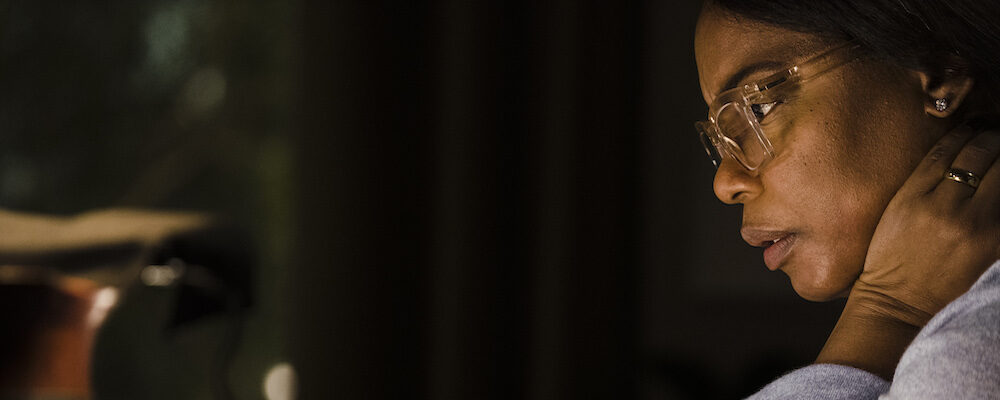Aunjanue Ellis-Taylor on Why Ava DuVernay’s ‘Origin’ Is Essential Viewing and the Importance of Confronting Truths
Alci Rengifo
Actor Aunjanue Ellis-Taylor is the kind of artist who brings genuine passion to a project. There is almost no other way to partake in a film like “Origin.” Writer-director Ava DuVernay’s latest is a sprawling, stirring and intelligent drama inspired by journalist and author Isabel Wilkerson’s acclaimed book, “Caste: The Origins of Our Discontents.” The Pulitzer Prize-winner’s monumental study poses the challenging thesis about how caste is at the root of global inequality, creating systems of oppression that go beyond just racism. Ellis-Taylor plays Wilkerson when the author first develops the idea in the wake of the Trayvon Martin killing. While overcoming personal trials and losses, Wilkerson goes on a journey taking her from Germany to India, during which she connects the dots between Jim Crow racism in America, Nazi Germany and the cruel oppression of the Dalit.
Ellis-Taylor delivers one of her greatest performances in “Origin,” which is saying much considering she has appeared in a wide variety of recent, acclaimed films and television series, such as HBO’s “Lovecraft Country,” “King Richard,” and the musical adaptation of “The Color Purple.” This new collaboration with DuVernay is also her most provocative work yet, which is why she is vocally frustrated at how “Origin” seems to be brushed aside in favor of other, safer mainstream fare. Ellis-Taylor spoke with Entertainment Voice about telling this important story at a time when it is still difficult to give it a proper platform.
Your latest film, “Origin,” is so different from many of the dramas we’re getting these days in mainstream media. How familiar were you with Wilkerson’s book before becoming involved with the film?
I hadn’t read the book, but I had been reading over the summer “The Warmth of Other Suns,” for which Ms. Wilkerson also won the Pulitzer Prize. In 2020, when “Caste” came out, I knew her by reputation and listened to her interviews just out of my own curiosity about her. That was my familiarity with the book and knowing it was stunning when it came out in terms of what she was calling for and bringing attention to. It was something new and radical when it comes to how we discuss our social divisions in this country.
Your role here is about bringing to the screen acclaimed writer Isabel Wilkerson’s “Caste” journey. What was your process in preparing for this role and did you have any interaction with Wilkerson?
I actually didn’t meet her. I haven’t met her, and maybe I will meet her soon. But when I became part of the film, Ava had developed this working practice with Ms. Wilkerson where Ms. Wilkerson said, “This is your baby now.” I respected that from the start. I arrived with this idea to the film that Ms. Wilkerson is a kind of Indiana Jones. Ava used the term “intellectual Indiana Jones.” That is how I saw her and that’s essentially what she is. She goes on a quest all around the world, to Berlin and India and all over the U.S. in search of this truth. The Trayvon Martin case inspired her to ask these deep questions.
“Origin” goes to the heart of oppression in a way that is quite unique, but is also part of what feels like an ongoing renaissance of Black American filmmaking and themes in American cinema. You have been in some notable titles tackling racism head-on. For you, where does “Origin” fit in with these wider discussions that are happening?
It’s interesting, that term of a renaissance. It’s perhaps called a renaissance but this kind of innovative work has been going on for a long time. The problem is it’s not noticed or acknowledged. We’ve been going through a bit of that with “Origin.” We’re being looked over and ignored by this industry. I think Ava has written and adapted something that is Herculean in its goal. She’s an incredibly visual storyteller. She fuses these different genres into the storytelling. It’s also done with a grace and beauty and it sucks that it’s not acknowledged or seen. What the film does is speak to a particular moment we’re living through in this country where we have a literal choice here to turn back what we’ve been used to. There’s been this drive to hold on to power. It is an embrace of something that is not the best of us, but we do it anyway because it sustains this caste system we have in America.
“Origin” tackles the kind of subject matter that can be truly challenging as, oftentimes, people do not like to look in the mirror. Do you think “Origin” might be overlooked by certain people because it is unnerving to contemplate?
Maybe, perhaps. I know sometimes we’re asked questions, or someone will say, “People think it’s medicine or homework. They don’t want to spend two hours experiencing that.” Then you go, “Ok, but people are making movies about scientists who make atomic bombs.“ You know what I mean? No one is saying that’s medicine or homework. They talk about being invited into that by the visual experience and innovative storytelling. I think that only happens in conversations about films that are like “Origin.” We have to push back against that and say, “No, if you’re going to see a movie about that, you can see a movie about this.“
“Origin” releases Jan. 19 in theaters nationwide.

